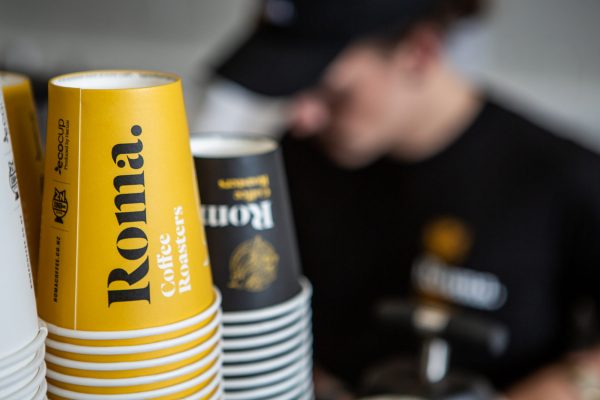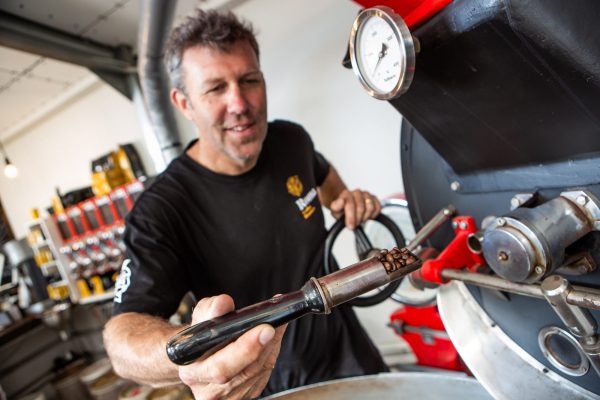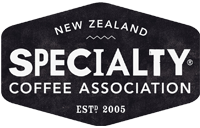As much as Kiwis love a good-looking coffee with beautiful latte art or a nicely placed mini-jug of cream to the side of a long black, what they really want is exceptional taste and quality. A smoothness and consistency they can indulge in, keep on coming back for, and tell the world about. Additionally, in this increasingly earth-conscious world, consumers like to know that their $5 is contributing to the maintenance of sustainable, fair business models.
The quality of your coffee roaster is the biggest aspect that will keep your customers coming back for more (on par with customer service), so it’s important to choose an exceptional partner when it comes to roasting and sourcing wholesale beans.
 Brand recognition
Brand recognition
Some would argue that opting to work with the unknown, niche brands can be a great way to stand out and build a business, but in the coffee industry, this might not always be the best option and could mean you’d need to spend more time in marketing and building your own and your customers’ knowledge of the brand. People generally prefer familiarity and certainty the coffee roaster brand can be trusted for taste, consistency, and quality. So, when sourcing a wholesaler and/or roaster, look for a brand that people can recognise, connect with, or will most likely have heard of. Opting for local brands specific to your region can be a huge bonus, too, depending on your target market. For example, if you get tourists through your doors quite often, having an NZ-roaster will be of great marketing benefit.
Know what’s happening elsewhere
Within your market research, you should take the time to sample coffee in nearby coffee shops and take note of the brands you like and dislike. See if you can source customer feedback, too. You’ll be able to find reviews online and see how popular different brands are. If you find that you like one or two particular brands, it might be worth jumping on their bandwagon – but at the same time, consider how well your business will do within the proximity of other coffee shops selling the same coffee.
 Sampling and shortlists
Sampling and shortlists
Once you’ve made some decisions regarding particular coffee roaster brands you’ve seen elsewhere, make contact with suppliers and book in a coffee tasting. Coffee quality can only really be judged when you try it and make a call on what you think. Taste, taste, taste! Make some shortlists! You can’t sell something you don’t believe in. We’ve got some NZ champion tasters at Roma!
Love your coffee beans
As much as it might seem like an additional thing to worry about, as a coffee provider, you need to care about where your coffee beans come from and find a way to connect with their backstory. Consumers often feel much more willing to spend their money when they know they’re getting a product that isn’t exploiting people across the globe. Know your stuff – this will make your customers feel much more inclined to come back to you!
Value working relationships
Like with any working environment, you need to get along with and be on the same wavelength as your business partner in the coffee industry. If you feel stressed every time you meet up with them or don’t think they’ll be great communicators further down the track, you’re setting yourself up for a ripple effect of issues once you sign a contract with them. Think carefully about who you want to go into partnership with, and make sure you are transparent from the beginning about what you’re looking for. At the end of the day, if there are issues with your coffee supplies, you’ll rapidly lose not only your customers but their faith in your sustainability.
 Consistency & seasonal differences
Consistency & seasonal differences
There’s nothing worse than having an amazing cup of coffee one day, then going back a second time to be left really disappointed. It’s enough to stop you from going back a third time because you wouldn’t want to risk spending money on something that might be terrible. When researching wholesalers and roasters, it’s important to ask them if there can be seasonality issues with their coffee – for example, single blend coffees might just be available at particular times of the year due to growing conditions in the regions where they are cultivated. If you’re aware of these things in the early days, you can take steps to avoid ‘bad coffee’ mishaps throughout the year. Another thing to consider is making sure you’re never short of coffee, so do scout out delivery options and time frames.
Before you jump into the most convenient partnership with any old coffee roaster brand for your business, step back and make sure you’ve mapped out your goals for your business, understood the importance of brand knowledge and good relationships, and let this guide your decision making. If people wanted a standard cup of coffee, they’d stay home and make it themselves. Your coffee is your biggest investment and choosing where it comes from and how it is treated will, therefore, be one of your biggest decisions.

 Sampling and shortlists
Sampling and shortlists Consistency & seasonal differences
Consistency & seasonal differences

